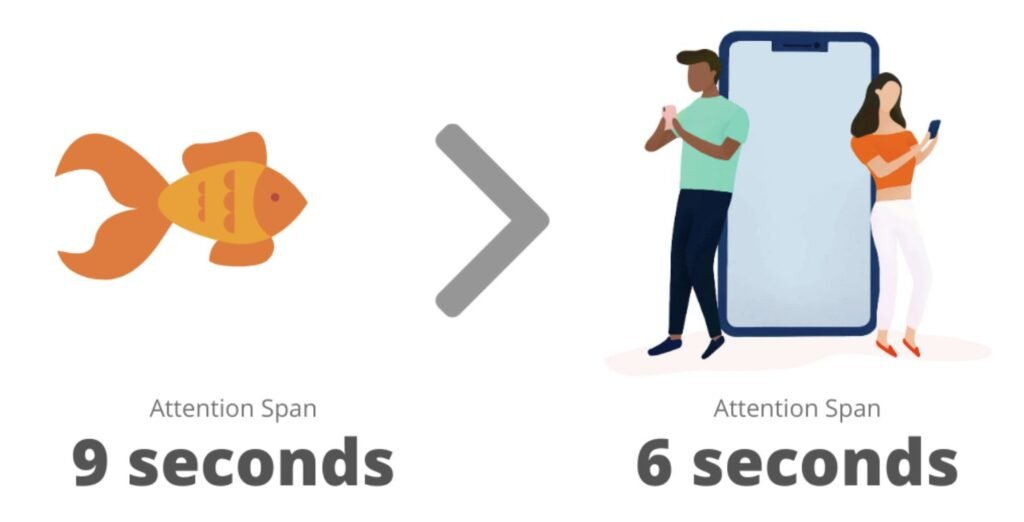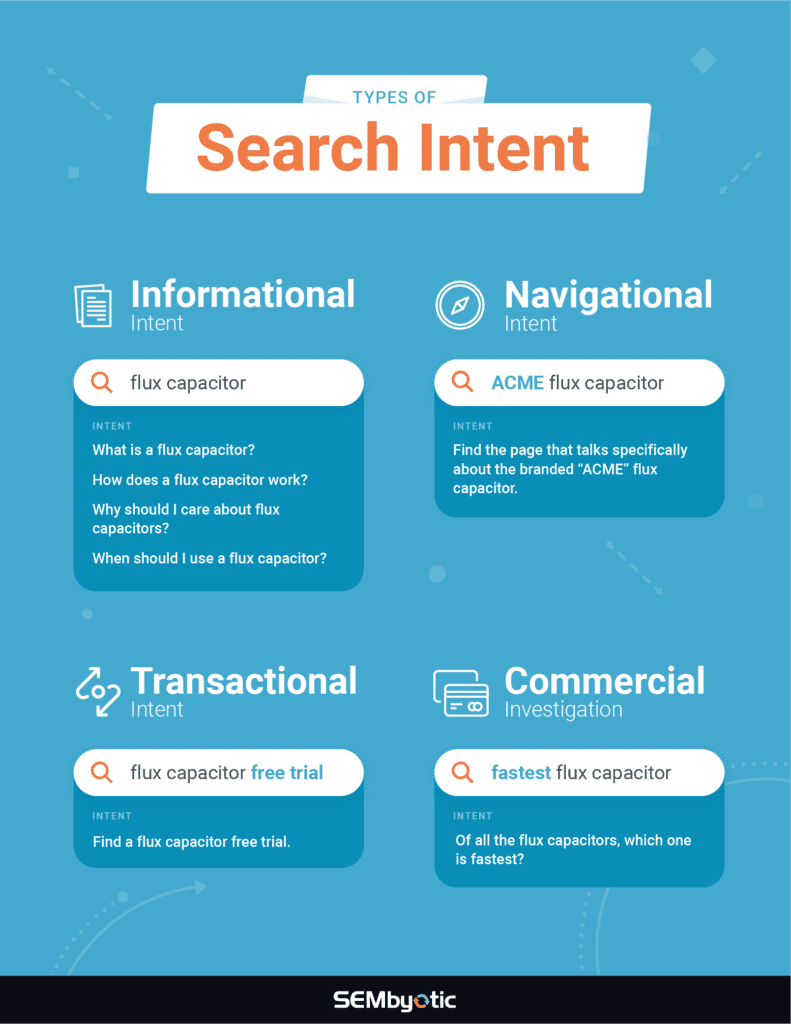When it comes to content marketing and SEO, Vlado Pavlik (@vladopavlik) is someone you should definitely listen to. He not only works at one of the best SEO software companies on the planet – Mangools – but is also its head of content.
Moreover, I am always excited to talk to experts who have been involved in online marketing for a long time and seen all the ups and downs. And in that, Vlado and I have a lot in common.
We both discovered blogging and SEO around 2008 and were fascinated by the idea that you can create content, reach real people and make money.
We learned content marketing and monetization on our own, launched web projects, and made money from them at a time when digital marketing was still in its infancy and not as huge as it is today.
Vlado joined Mangools’ customer support team in 2017, and in a short time, has risen to a role where he leads Mangools’ inbound marketing efforts. During this same time, it’s evident that the Mangools blog has been making amazing strides in the industry with its in-depth and definitive content.
So I asked Vlado to share his wisdom with Smemark readers and he was kind to agree. Let’s dive in.
Conversation with Vlado Pavlik
Please tell us a bit about you, your background, and your location.
I live in Bratislava, the capital of Slovakia and I work as the head of content at Mangools SEO tools. I discovered blogging and SEO during high school, around 2008-2009. I was fascinated by the idea that you can create content, reach real people that will actually read it, and – the most interesting thing for a 15-year-old me – earn some money doing it.
One of my first projects was a directory of all the job search websites in Slovakia. The website was heavily keyword-stuffed and full of reciprocal links. But it worked. Shortly, I was ranking for some “big” keywords and earning money with Google Adsense. SEO was really that simple at the time 🙂
Unfortunately, my website didn’t last long because – surprise surprise – the Panda algorithm update wiped it off the face of the earth (and the search results).
Although I studied languages (Arabic and English) at university, my love for SEO and blogging has not faded over time. I worked on some smaller projects and even freelanced as a WordPress website creator for a while. It was not my cup of tea though.
So when I found out that there is a globally popular SEO toolset company based in Slovakia and that they are hiring, I did not hesitate for a minute.
How has been your experience with Mangools? How did you first get involved?
Mangools is an SEO toolset that is known mainly for its ease of use and great UX. Our first tool, KWFinder, has quickly become one of the most popular keyword research tools on the market.
I joined the team as a customer support specialist and it was a great experience because I got to really know our tools as well as our customers and their struggles. But soon, the guys saw that I’m more passionate about marketing and writing so I became responsible for our blog.
There were only five of us at that time so everyone was involved in everything – from shaping the way the tools look, to marketing, design, or branding decisions. It was great to be part of such a small team working on a world-popular product. I learned a lot and grew as a marketer.
The team has grown a lot since, right now, there are more than 20 people. So there’s much more structure and planning and fewer spontaneous decisions, which is natural. But I think the spirit remained the same – we’re still a group of people who love what they do and there’s still a lot of “learning by doing” so it’s never boring.
Besides working on Mangools, we acquired two other SaaS products – EmailListVerify and Uptime Robot. All three brands together constitute one company – itrinity – that ranks in the top 100 of Europe’s fastest-growing companies list by Financial Times.
Who are your target audience and content niche? What impact do you hope to have on other people as a result of your content? How does it help them?
Our target audience consists mainly of smaller business owners, bloggers, freelancers, niche site marketers but we also have some bigger companies as customers. To put it simply, our target audience is anyone who wants to do SEO on their own.
Many people don’t necessarily need a complicated tool with hundreds of features because they wouldn’t use them anyway. They need something that offers reliable data, has a friendly interface, and doesn’t take a month to learn to work with.
This is reflected in the type of content we create too. People who read our blog are mostly SEO beginners or guys who know the basics but want to deepen their knowledge so that they can apply it to their own projects.
We teach them that although SEO is a complex process, it’s no rocket science and if you understand the fundamentals, you can go very far.
That’s why we focus on the SEO basics and techniques and principles that stood the test of time rather than experiments and inflated claims that may be exciting but are not supported by any evidence.
What tools/resources you use at Mangools for content planning, creation, publication, and distribution?
Nothing fancy. Our blog runs on WordPress, we have simple Google Sheets for content planning, we use Notion for projects and tasks management, and Slack for internal communication.
When it comes to promotion, we cover social media where most SEO people gather – Facebook, Twitter, Linkedin, partly Instagram. And we put a lot of emphasis on our blog newsletter.
In terms of writing, I love Grammarly that does basic grammar checks, and the Hemingway App that helps you make your writing simple, clear, and straight to the point.
How has been the experience so far with content marketing as a way to grow Mangools? Are you happy with your current content and results? Why?
Yes and no. Our blog has grown a lot since we started and I’m happy with many accomplishments (I am especially proud of our Complete SEO Guide for Beginners). But there are always things that we can do better and I believe there’s a lot of space for growth.
These days, we’re re-thinking the whole content strategy (as well as all the other marketing strategies) as part of our attempt to bring more overall clarity and a better strategy to the company.
It’s easy to get stuck in your daily routines and processes you have set up some time ago without ever taking a step back and looking at the whole picture from a wider perspective.
But if you do that, maybe you’ll see that your strategy is no longer working the way you thought it is. Maybe the market has changed significantly. Maybe you’re not achieving the full potential of your business. Maybe you’re missing some new way of reaching new people.
So my advice to the readers as well as to myself is this: Be careful about complacency and don’t get stuck in everyday tasks. Always take some time to step back and think about how to do things better.
What do you think people struggle with the most, mistakes or false assumptions they make? Why?
I believe the biggest problem is that many people still don’t understand the very basics of SEO and content marketing. Here are some common mistakes I noticed:Thinking that SEO is some kind of magic: Many people assume that SEO is some secret hack that will immediately improve your rankings with little to no effort. But SEO doesn’t work like that. There’s no shortcut or secret trick that will guarantee long-term results.
It’s an ongoing process of optimizing and improving various aspects of your website – from the technical stuff and content creation to the building of authority in the online world.
I believe that at the end of the day, SEO is all about the quality of your content and the actual effort you put into making it useful for people. SEO won’t help you if your content is garbage. This is closely connected to the second point.
Wasting time on SEO myths: Instead of putting some real effort into making the content unique and competitive, many bloggers focus on artificial techniques such as LSI keywords, the “perfect” content length, or keyword density.

Image Source: DataBox
What to focus on instead? Things that are proven to work:
- unique, helpful content
- consistent publishing schedule
- well-structured hierarchy of pages
- relevant internal linking
- regular content updates
- great UX and accessibility
- creating linkable assets
- building relationships with other bloggers
Here’s a good rule of thumb: If an SEO technique seems too easy and doesn’t require any real effort, it usually doesn’t work.
Not having a clear content plan: I’ve seen many bloggers who cover the same topic with 5 different posts and wonder why they don’t rank with any of them. The problem is – they don’t have a plan. (To tell the truth, we were guilty of this too at the beginning.)
The solution is very simple – learn about what topics are the most popular in your niche. Then select the ones that make sense for you business-wise and find the keywords that represent those topics. And then, just follow a simple rule: 1 post = 1 focus keyword.

Image Source: Mangools
Each post is a business asset, a small investment. Once it’s online, take care of it, promote it, update it regularly so that it stays relevant. As Andy Crestodina says, “You don’t need 1000 articles. You need 100 great articles.”
In your opinion, how is content marketing/blogging changing over the years? Anything that surprised you?
People’s attention span on the internet is getting shorter and it is reflected in the type of content that is getting more and more popular – the rise of video, Instagram stories, TikTok.

So it’s important to keep these trends in mind and think about ways to make your content easier to digest. That being said, I believe that long-form written content has its important place and will always have its audience.
What’s your #1 reason for wanting to create content (as a business)?
Besides the reason mentioned above – that we want to educate people in SEO – there’s a very practical aspect too. Having a blog gives you opportunities to cover more keywords with various search intents. That’s why I think every online business should have an educational blog.

Image Source: SEMbyotic
Focusing on keywords with informational search intent enables you to reach people who are not in the buying process right now, but might be in the future. It would be impossible for us to target keywords such as “what is SEO” with a product landing page. But a blog is an ideal place.
Yes, people searching for “what is SEO” may not want to buy SEO tools immediately, but at least they get to know our brand. They may subscribe to our newsletter, follow us on social media. We earn their trust which is a very important asset in the long run.
What would you say is the #1 key to success in content marketing?
Satisfying user’s search intent. To succeed in content marketing, you have to know your target audience perfectly – what they’re looking for and why they’re looking for it – so that you can shape your content around those topics.
I’ve heard a nice phrase, I think it was by Cyrus Shepard in one of his videos. He said: Be the last click. It means you should not only focus on how to get people to your website but also make sure they’ll stay once they come. And, most importantly, satisfy their search intent so that they don’t have to look elsewhere.
One of the most essential content marketing questions is: How to make my content satisfactory for the user? And another one is: How to make my content better than my competitor’s?
What are the qualities you look for in your content before you can publish it? Any preferences in terms of word count?
Here are some of the things I always look at when publishing a new post:
- The post has to have a clear goal: What do I want to achieve with this piece of content? A sale? An email subscription? A social buzz?
- The topic must be covered comprehensively: Is the post covering the topic from A to Z? Does it answer all the possible related questions? Will the reader have to visit another site to have their question answered from a different angle?
- The structure of the post must be logical: Does the post structure make sense if I only read the headings?
- The content must be easy to skim: Is it easy to skim the text or find a specific piece of information quickly? Are the most important parts highlighted in any way? No one likes walls of text.
- There must be something that stands out: Does the article provide some unique value – data, appealing illustrations, comparison tables, contributions from experts in the field, etc.?
When it comes to word count, I usually look at the average length of the articles ranking on the first SERP for my focus keyword so that I have an idea about what length is preferred. But that’s about it.
Which people, books, or blogs have had the most influence on your growth as a blogger/inbound marketer and why? What do you read? Where do you go to stay updated?
My favorite place that helps me keep my finger on the pulse of the SEO industry is Twitter. Here are some people I really recommend following for actionable tips and advice:
Andy Crestodina (@crestodina)
Dan Shure (@dan_shure)
Gael Breton (@GaelBreton)
Cyrus Shepard (@CyrusShepard)
Julia McCoy (@JuliaEMcCoy)
Charles Floate (@Charles_SEO)
Matthew Woodward (@MattWoodwardUK)
Nathan Gotch (@nathangotch)
Marie Haynes (@Marie_Haynes)
David Perell (@david_perell)
Other than that, it’s mostly the industry blogs that you’ll find in every “best SEO blogs” list.
But I’d like to give a special shoutout to one particular SEO resource – The Hangout Library by DeepCrawl – which is an extensive catalog of all the official Google’s Webmaster Hangouts classified by various topics. It is one of my favorite resources I often use when I need to back up some SEO claim with an official statement from Google.



![Website homepage content writing in 2024 [7 best practices + examples]](https://hypegig.com/wp-content/uploads/2024/01/write-cup-featured-1024x683.jpg)